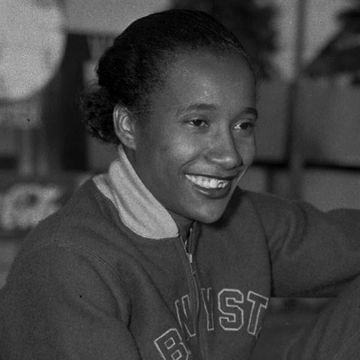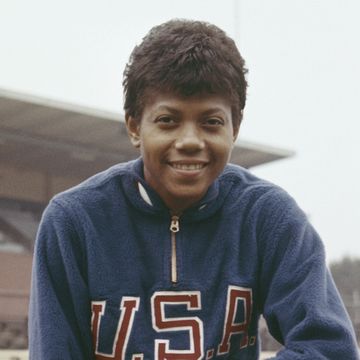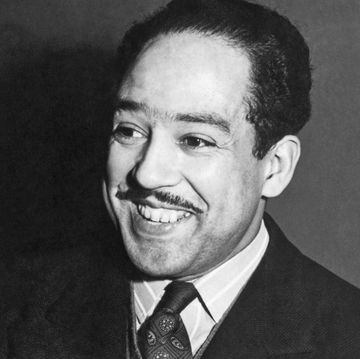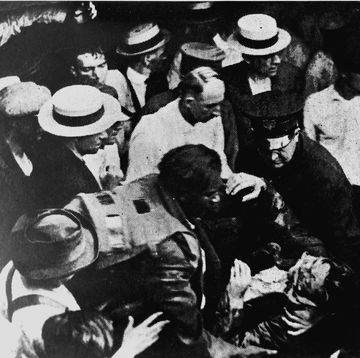(1945-2005)
Who Was August Wilson?
Famed playwright August Wilson wrote his first play, Jitney, in 1979. Fences earned him a Pulitzer Prize and a Tony Award in 1987. Wilson won another Pulitzer Prize in 1990, for The Piano Lesson. In 1996, Seven Guitars premiered on the Broadway stage, followed by King Hedley II in 2001 and Gem of the Ocean in 2004. Wilson died on October 2, 2005, in Seattle, Washington.
Quick Facts
FULL NAME: Frederick August Kittel
BIRTHDATE: April 27, 1945
BIRTHPLACE: Pittsburgh, Pennsylvania
DEATH: October 2, 2005
SPOUSE: Constanza Romero (m. 1994-2005), Judy Oliver (m. 1981-1990), Brenda Burton (m. 1969-1972)
CHILDREN: Sakina Ansari
ASTROLOGICAL SIGN: Taurus
Early Life and Education
Wilson was born Frederick August Kittel in Pittsburgh, Pennsylvania, on April 27, 1945. His mother, Daisy Wilson, was of African American heritage. His father was a German immigrant named Frederick Kittel.
As a child, Kittel attended St. Richard's Parochial School. When his parents divorced, he, his mother and his siblings moved from the poor Bedford Avenue area of Pittsburgh to the mostly white neighborhood of Oakland. After facing the relentless bigotry of his classmates at Central Catholic High School, he transferred to Connelly Vocational High School, and later to Gladstone High School. When he was 15 years old, Wilson pursued an independent education at Carnegie Library of Pittsburgh, where he would earn his high school diploma.
Following his father's death in 1965, a 20-year-old Wilson adopted the pen name "August Wilson" — reportedly an homage to his mother — and declared himself a poet. In 1968, Wilson and a friend, Rob Penny, co-founded the Black Horizon Theater.
Wilson remained primarily focused on making it as a poet — largely to no avail — until moving to St. Paul, Minnesota, in 1978.
Plays: 'Fences, 'The Pittsburgh Cycle,' 'The Piano Lesson'
Wilson wrote his first notable play in 1979, Jitney, for which he earned a fellowship at the Minneapolis Playwright Center.
The following year, his new play, Ma Rainey's Black Bottom, was accepted at the Eugene O'Neill Playwright's Conference. The year 1982 was particularly fruitful for Wilson, as it marked his introduction to Lloyd Richards, who went on to direct Wilson's first six Broadway plays.
Wilson's play Fences premiered on Broadway in 1987, earning the playwright his first Pulitzer Prize as well as a Tony Award. Set in the 1950s, Fences explored the themes of the ever-evolving Black experience and race relations in America. Fences was the sixth of the playwright's 10-part series called The Pittsburgh Cycle (aka The Century Cycle), which defined each "part" by decade. Joe Turner, the second part of the cycle, opened on Broadway in 1988.
He took home another Pulitzer Prize in 1990, this time for The Piano Lesson, following its Broadway premiere.
A collection of Wilson's work, entitled Three Plays by August Wilson, was published in book form in 1991. The following year brought the Broadway premiere of Two Trains Running.
Seven Guitars made its way to the Broadway stage in 1996.
King Hedley II made its Broadway debut in 2001, and Gem of the Ocean premiered in Chicago roughly a year later. In 2003, Ma Rainey's Black Bottom was revived on Broadway. Gem of the Ocean premiered on Broadway in 2004, where it made a run of 72 performances.
Death
Wilson died of liver cancer on October 2, 2005, in Seattle, Washington. His new play, Radio Golf, had opened in Los Angeles, California, just a few months earlier.
Personal Life
In 1969 Wilson married Brenda Burton. The couple welcomed a daughter, Sakina, in 1970; they divorced two years later.
In 1981 Wilson married his second wife Judy Oliver. The pair divorced in 1990.
In 1994, Wilson married for the third time, to a costume designer named Constanza Romero and had daughter, Azula, in 1997.
Fact Check: We strive for accuracy and fairness. If you see something that doesn't look right, contact us!
QUOTES
- Never is it suggested that playwrights like David Mamet or Terrence McNally are limiting themselves to whiteness. The idea that we are trying to escape from the ghetto of Black culture is insulting.
- I once wrote a short story called 'The Best Blues Singer in the World' and it went like this: 'The streets that Balboa walked were his own private ocean, and Balboa was drowning.' End of story. That says it all. Nothing else to say. I've been rewriting that same story over and over again. All my plays are rewriting that same story. I'm not sure what it means, other than life is hard.
- I think my plays offer (white Americans) a different way to look at Black Americans. For instance, in 'Fences' they see a garbageman, a person they don't really look at, although they see a garbageman every day. By looking at Troy's life, white people find out that the content of this Black garbageman's life is affected by the same things—love, honor, beauty, betrayal, duty. Recognizing that these things are as much part of his life as theirs can affect how they think about and deal with Black people in their lives.
The Biography.com staff is a team of people-obsessed and news-hungry editors with decades of collective experience. We have worked as daily newspaper reporters, major national magazine editors, and as editors-in-chief of regional media publications. Among our ranks are book authors and award-winning journalists. Our staff also works with freelance writers, researchers, and other contributors to produce the smart, compelling profiles and articles you see on our site. To meet the team, visit our About Us page: https://www.biography.com/about/a43602329/about-us












